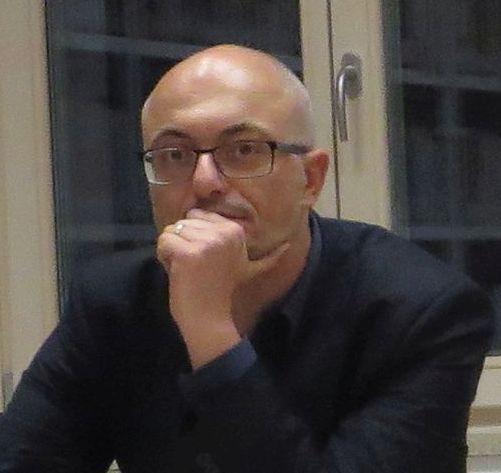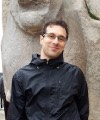Studying at the University of Verona
Here you can find information on the organisational aspects of the Programme, lecture timetables, learning activities and useful contact details for your time at the University, from enrolment to graduation.
Academic calendar
The academic calendar shows the deadlines and scheduled events that are relevant to students, teaching and technical-administrative staff of the University. Public holidays and University closures are also indicated. The academic year normally begins on 1 October each year and ends on 30 September of the following year.
Course calendar
The Academic Calendar sets out the degree programme lecture and exam timetables, as well as the relevant university closure dates..
| Period | From | To |
|---|---|---|
| 1° semestre lezioni a Trento | Sep 13, 2021 | Dec 22, 2021 |
| 1 A | Sep 27, 2021 | Nov 6, 2021 |
| 1 B | Nov 15, 2021 | Jan 12, 2022 |
| 2° semestre lezioni a Trento | Feb 14, 2022 | May 27, 2022 |
| 2 A | Feb 14, 2022 | Mar 26, 2022 |
| 2 B | Apr 4, 2022 | Jun 4, 2022 |
| Session | From | To |
|---|---|---|
| Sessione d'esame invernale | Jan 10, 2022 | Feb 12, 2022 |
| Sessione d'esame estiva | Jun 6, 2022 | Jul 23, 2022 |
| Sessione d'esame autunnale | Aug 29, 2022 | Sep 24, 2022 |
| Session | From | To |
|---|---|---|
| Sessione straordinaria (a.a. 2020/21) | Mar 28, 2022 | Apr 2, 2022 |
| Sessione estiva | Jul 11, 2022 | Jul 16, 2022 |
| Sessione autunnale | Nov 7, 2022 | Nov 12, 2022 |
| Sessione straordinaria | Mar 31, 2023 | Apr 6, 2023 |
| Period | From | To |
|---|---|---|
| Festività natalizie | Dec 24, 2021 | Jan 2, 2022 |
| Festività pasquali | Apr 15, 2022 | Apr 19, 2022 |
| Festività Santo Patrono di Verona | May 21, 2022 | May 21, 2022 |
| Chiusura estiva | Aug 15, 2022 | Aug 20, 2022 |
Exam calendar
Exam dates and rounds are managed by the relevant Culture and Civilisation Teaching and Student Services Unit.
To view all the exam sessions available, please use the Exam dashboard on ESSE3.
If you forgot your login details or have problems logging in, please contact the relevant IT HelpDesk, or check the login details recovery web page.
Should you have any doubts or questions, please check the Enrollment FAQs
Academic staff

Bassetti Massimiliano
 massimiliano.bassetti@univr.it
massimiliano.bassetti@univr.it
 045802 8376
045802 8376
 giovanni.bernardini@univr.it
giovanni.bernardini@univr.it
 giovanni.ciappelli@univr.it
giovanni.ciappelli@univr.it
Study Plan
The Study Plan includes all modules, teaching and learning activities that each student will need to undertake during their time at the University.
Please select your Study Plan based on your enrollment year.
1° Year
| Modules | Credits | TAF | SSD |
|---|
Medieval History, History of Christianity and Churches
Contemporary History I - LM
Early Modern History I - LM (Historical Anthropology)
1 module among the following1 module between the followingHistory of Science and Technology - LM
1 module between the followingHistory of Political Institutions II
History of Political Thought
1 module among the following
History of Medieval Art I
Medieval Latin Literature II
Digital tools for historical research
2° Year activated in the A.Y. 2022/2023
| Modules | Credits | TAF | SSD |
|---|
| Modules | Credits | TAF | SSD |
|---|
Medieval History, History of Christianity and Churches
Contemporary History I - LM
Early Modern History I - LM (Historical Anthropology)
1 module among the following1 module between the followingHistory of Science and Technology - LM
1 module between the followingHistory of Political Institutions II
History of Political Thought
1 module among the following
History of Medieval Art I
Medieval Latin Literature II
Digital tools for historical research
| Modules | Credits | TAF | SSD |
|---|
Legend | Type of training activity (TTA)
TAF (Type of Educational Activity) All courses and activities are classified into different types of educational activities, indicated by a letter.
Early Modern History I - LM (Historical Anthropology) [Sede VR] (2021/2022)
Teaching code
4S001217
Teacher
Coordinator
Credits
6
Also offered in courses:
- Early Modern History I - LM [Sede VR] of the course Master's degree in Arts (interuniversity)
- Early Modern History (m) of the course Master’s degree in Tradition and Interpretation of Literary Texts
Language
Italian
Scientific Disciplinary Sector (SSD)
M-STO/02 - MODERN HISTORY
Period
1 A dal Sep 27, 2021 al Nov 6, 2021.
Learning outcomes
Acquisition of a good command of the research tools related to early modern history, so that the student is able to critically use the sources and scientific literature related to one or more themes chosen as central to the course. The teaching activity will therefore aim to develop the individual research skills of the student as much as possible.
Program
The first part of the course aims to provide students with the main coordinates for the in-depth study of the fundamental themes of early modern society and culture. The second part will be focused The second part will focus on the theme of "poplar religion" in the early modern Europe, and Italy in particular.
This section will be divided into a first part of presentation of general problems and a second part dedicated to the in-depth seminar of some issues through the direct analysis of sources.
This last aspect is the fundamental element of the course, which will have a profoundly seminar structure. All students are therefore invited to participate actively and should be willing to work during the course on the texts provided. They should also be willing to discuss their reading impressions freely with the teacher and other students. Active participation will be a key element of assessment for learners and will involve ongoing work on individual readings and classroom discussions. The frequency is therefore only recommended if the participation will be active.
In other words: the lessons will be discussed openly and freely (because this is a seminar) about what you will read, individually or in a group, during the course and all students should feel comfortable in exposing their points of view, obviously within the limits of education and mutual respect.
Both attending and not attending students, will have to study the book M. Bellabarba e V. Lavenia (a cura di), Introduzione alla storia moderna, il Mulino, Bologna, 2018. Knowledge of the text will be ascertained by means of a written test with open questions.
As far as the monographic part is concerned, the students attending the course will write a paper on one or some of the documents analysed during the course. The paper must be delivered by e-mail at least a few days before the oral examination, in which it will be discussed
Those who do not attend must prepare two texts of their choice among those indicated in the Bibliography:
Bibliography
Examination Methods
General section
The assessment of the knowledge of the book Bellabarba, Lavenia, Introduzione alla storia moderna, will consist of a written test and open questions for all - both attending and not attending students. Students will have to demonstrate their knowledge of the main junctions of the history of the modern age, placing them critically within the context.
Monographic part.
The examination will take place in oral form.
For the attending students: a written paper will be requested, whose subject will be agreed with the teacher. In addition to the latter, which will have to demonstrate critical thinking skills in relation to the sources on which it will be based, active participation in the course will also be evaluated.
For those who do not attend: it is planned to read two books of choice among those proposed. The oral interview will test the knowledge of the texts and students will have to demonstrate their ability to place the topics in a correct and critical way.
Type D and Type F activities
COMPETENZE TRASVERSALI
Modules not yet included
Career prospects
Module/Programme news
News for students
There you will find information, resources and services useful during your time at the University (Student’s exam record, your study plan on ESSE3, Distance Learning courses, university email account, office forms, administrative procedures, etc.). You can log into MyUnivr with your GIA login details: only in this way will you be able to receive notification of all the notices from your teachers and your secretariat via email and soon also via the Univr app.
Linguistic training CLA
Double degree
The University of Verona, through a network of agreements with foreign universities, offers international courses that enable students to gain a Double/Joint degree at the time of graduation. Indeed, students enrolled in a Double/Joint degree programme will be able to obtain both the degree of the University of Verona and the degree issued by the Partner University abroad - where they are expected to attend part of the programme -, in the time it normally takes to gain a common Master’s degree. The institutions concerned shall ensure that both degrees are recognised in the two countries.
Places on these programmes are limited, and admissions and any applicable grants are subject to applicants being selected in a specific Call for applications.
The latest Call for applications for Double/Joint Degrees at the University of Verona is available now!
Graduation
List of theses and work experience proposals
| theses proposals | Research area |
|---|---|
| Ambiti di tesi | Art & Architecture - Art & Architecture |
Student mentoring
Student login and resources
Manifesto degli studi
Manifesto degli studi del CdLM interateneo in Scienze storiche
Documents
| Title | Info File |
|---|---|
|
|
pdf, it, 466 KB, 26/02/24 |
|
|
pdf, it, 456 KB, 26/02/24 |























